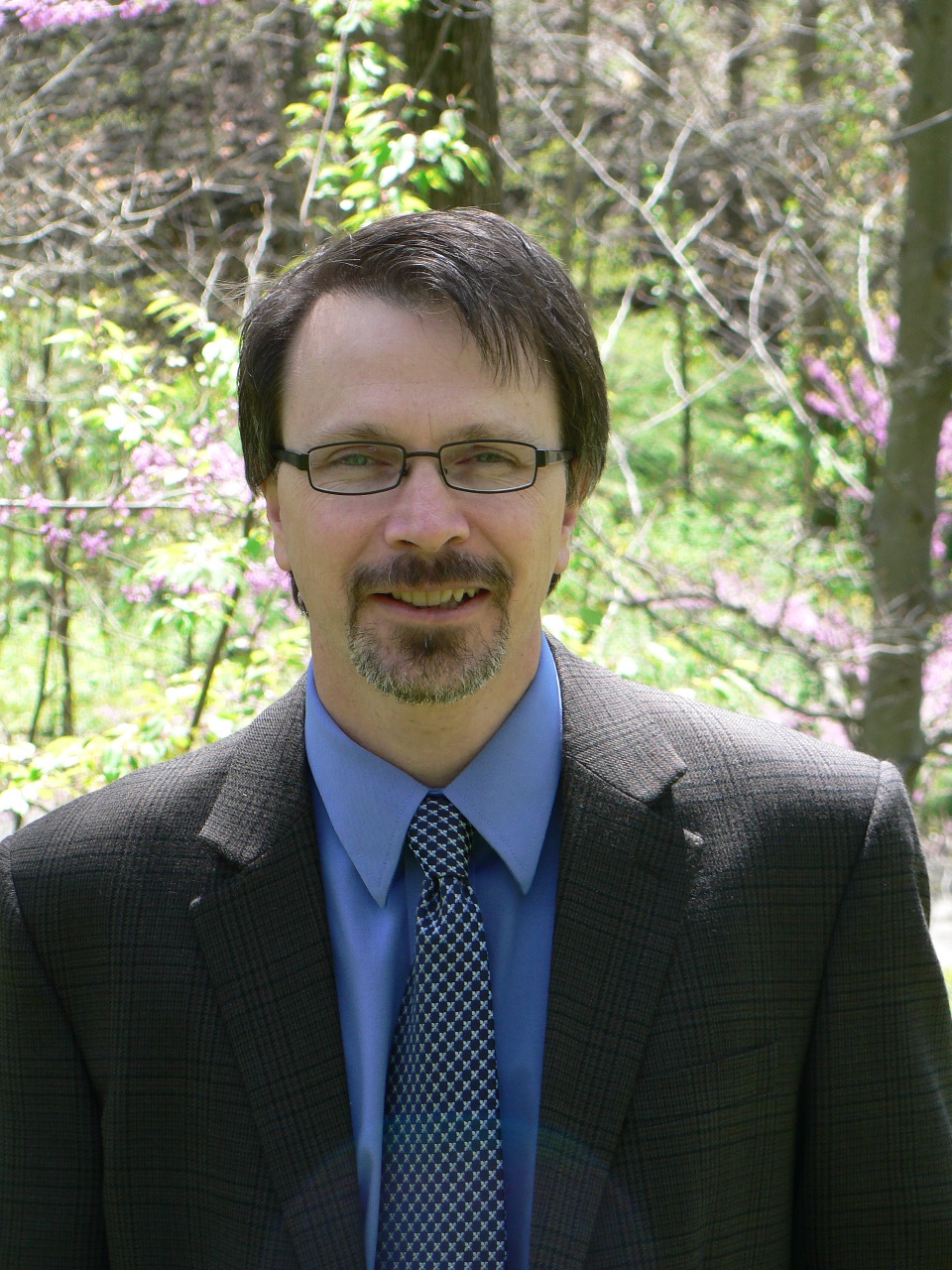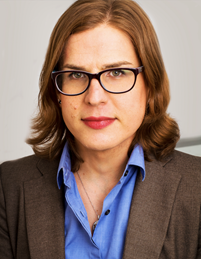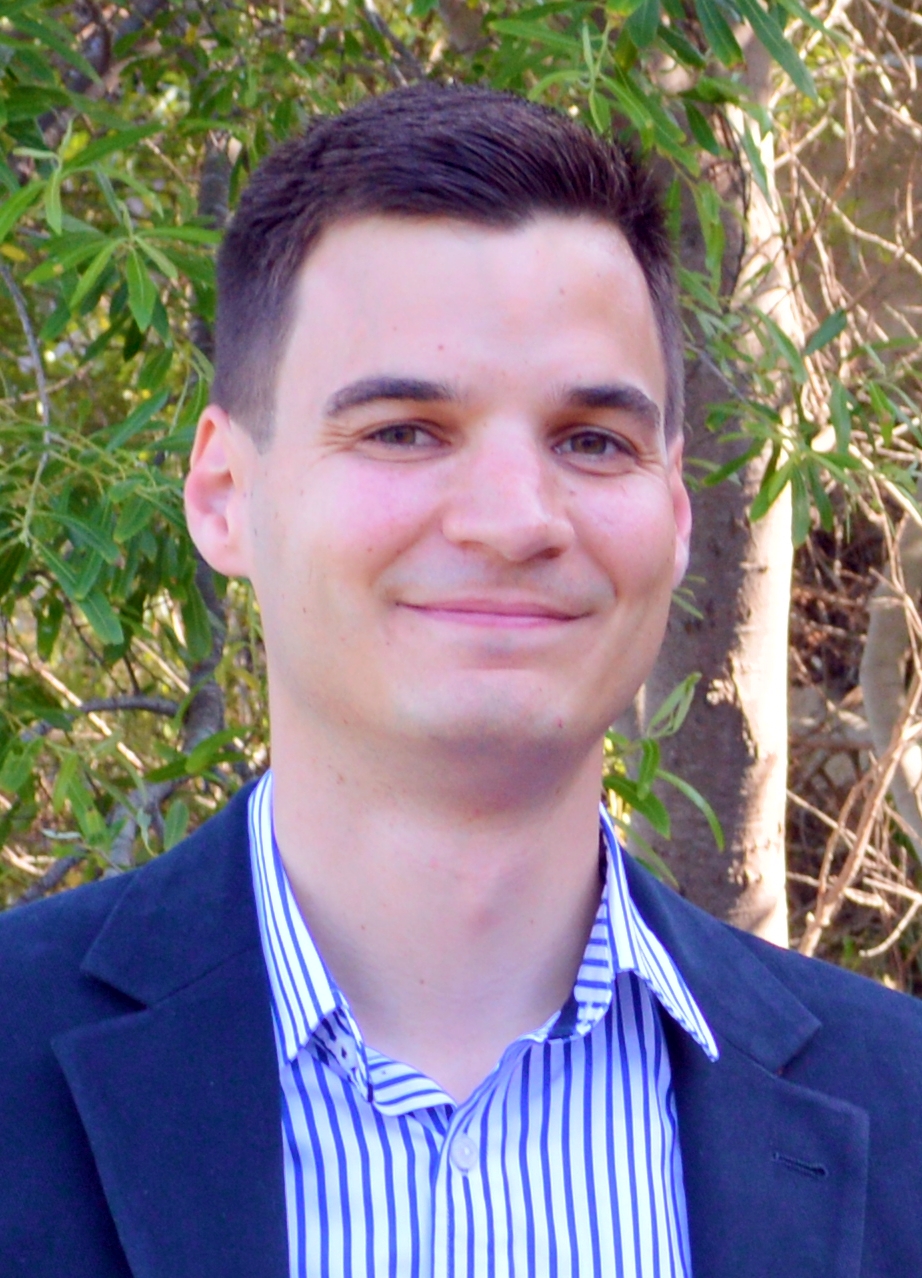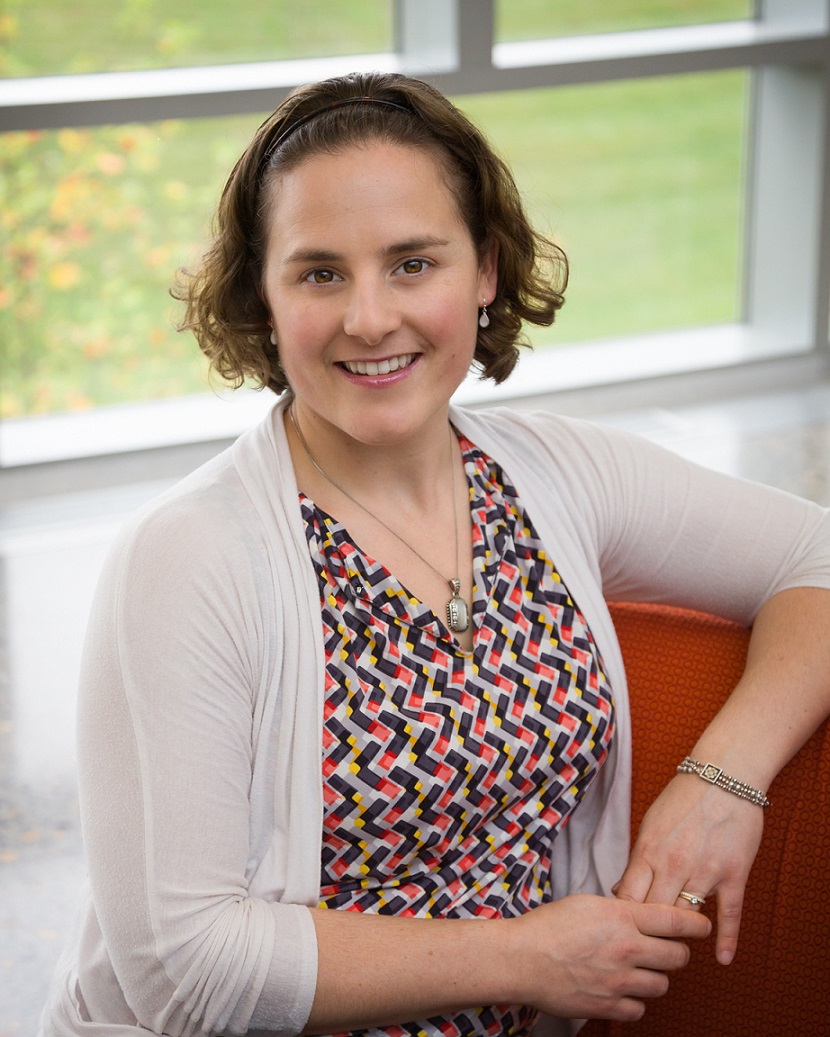NSSA Elections 2014
Welcome to the 2014 NSSA Executive Committee Elections. This page lists some information on all the candidates running for office. The voting is done online and each current NSSA member will receive an email with a unique link to the voting site by December 14, 2014.
Vice-President
Patrick M. Woodward – Ohio State University
 Statement: As a scientist who uses neutrons to characterize new materials I’m fully aware of the unique and central role they play in many areas of research. There are few areas of science where the needs of such a diverse group of scientists and engineers must be met by precious few facilities. The NSSA is an important advocate for supporting neutron science and research in this country. If elected I would strive to maintain the tradition of strong advocacy that NSSA has embodied. The biannual ACNS meeting is an important opportunity for the broad spectrum of people who use neutrons to come together to celebrate and discuss the full scope of neutron science. While I have not previously been an officer in the NSSA I have some experience with the ANCS meeting. I served as a programming co-chair for the 2014 ACNS meeting in Knoxville, TN. Prior to that I was a member of the Chemistry programming subcommittee for the 2012 ACNS meeting in Washington, D.C. I have also served as organizer for the 2008 North American Solid State Chemistry conference, and have organized symposia at MRS and APS meetings. While my scientific training and background is mostly in the field of chemistry, I work closely with both engineers and physicists in my own research. So I feel confident that I can understand and represent the variety of people who use and depend on neutrons in their research if elected.
Statement: As a scientist who uses neutrons to characterize new materials I’m fully aware of the unique and central role they play in many areas of research. There are few areas of science where the needs of such a diverse group of scientists and engineers must be met by precious few facilities. The NSSA is an important advocate for supporting neutron science and research in this country. If elected I would strive to maintain the tradition of strong advocacy that NSSA has embodied. The biannual ACNS meeting is an important opportunity for the broad spectrum of people who use neutrons to come together to celebrate and discuss the full scope of neutron science. While I have not previously been an officer in the NSSA I have some experience with the ANCS meeting. I served as a programming co-chair for the 2014 ACNS meeting in Knoxville, TN. Prior to that I was a member of the Chemistry programming subcommittee for the 2012 ACNS meeting in Washington, D.C. I have also served as organizer for the 2008 North American Solid State Chemistry conference, and have organized symposia at MRS and APS meetings. While my scientific training and background is mostly in the field of chemistry, I work closely with both engineers and physicists in my own research. So I feel confident that I can understand and represent the variety of people who use and depend on neutrons in their research if elected.
Lilo D. Pozzo – University of Washington
 Statement: I joined NSSA as a junior graduate student when I was barely being introduced to the field of neutron scattering. Since then, I have participated in numerous ACNS meetings and now students and postdocs in my group continue to do the same. I have also gained first hand experience on how NSSA activities can help to grow and unite our community. My goal as vice president would be to further these objectives by finding new and creative mechanisms to get even more young scientists interested in neutron scattering science and thus to grow and ensure the health of our small research community. One of the most effective mechanisms that we have at our disposal is the ACNS conference, which is the primary responsibility of the NSSA vice president. However, despite its huge success in bringing us together to share our latest research, this key NSSA activity could still benefit from increased participation from young researchers that may still be wondering how neutron scattering may help them in their work. A way to do this could be to expand the reach of our traditional conference venues, typically held close to US neutron facilities, to include locations with a large presence of new research communities that could be interested in participating and learning about neutron capabilities. These researchers are unlikely to fly long distances to attend our conference. We would also proactively engage active researchers in the x-ray scattering community that may not be familiar with new neutron capabilities in the US and may not fully understand the synergy that can develop when these ‘sister’ techniques are used together to solve complex research problems. I propose that we advertise the conference heavily to attract these new communities and that we also continue to strengthen ACNS short-courses that effectively introduce basic and advanced topics to these new researchers.
Statement: I joined NSSA as a junior graduate student when I was barely being introduced to the field of neutron scattering. Since then, I have participated in numerous ACNS meetings and now students and postdocs in my group continue to do the same. I have also gained first hand experience on how NSSA activities can help to grow and unite our community. My goal as vice president would be to further these objectives by finding new and creative mechanisms to get even more young scientists interested in neutron scattering science and thus to grow and ensure the health of our small research community. One of the most effective mechanisms that we have at our disposal is the ACNS conference, which is the primary responsibility of the NSSA vice president. However, despite its huge success in bringing us together to share our latest research, this key NSSA activity could still benefit from increased participation from young researchers that may still be wondering how neutron scattering may help them in their work. A way to do this could be to expand the reach of our traditional conference venues, typically held close to US neutron facilities, to include locations with a large presence of new research communities that could be interested in participating and learning about neutron capabilities. These researchers are unlikely to fly long distances to attend our conference. We would also proactively engage active researchers in the x-ray scattering community that may not be familiar with new neutron capabilities in the US and may not fully understand the synergy that can develop when these ‘sister’ techniques are used together to solve complex research problems. I propose that we advertise the conference heavily to attract these new communities and that we also continue to strengthen ACNS short-courses that effectively introduce basic and advanced topics to these new researchers.
Secretary
Matthew E. Helgeson – University of California, Santa Barbara
 Statement: Since beginning my research career, I have been a strong user of and proponent for neutron scattering methods and facilities. My research lies at the interface of chemical engineering, materials science and soft matter physics. Our primary interest is the design and processing of colloids in structured fluids to enable novel materials for biotechnology, energy, and high-performance materials. As part of this work, I have collaborated with user facilities to help develop unique sample environments and related methods for in situ SANS under flow of complex fluids. As service to the community, I have been a member of both the Materials Program Advisory Committee at LANSCE and the Beam Time Allocation Committee at NCNR, and have been a contributor at recent workshops to guide the future directions of both facilities. I have also represented the user committee during several program reviews at NCNR. I am a long-time referee of user proposals to neutron facilities worldwide, and have chaired sessions at the American Conference on Neutron Scattering. I believe it is important to continue to train future generations of neutron scattering scientists, and so have participated as a lecturer for several neutron scattering schools and begun development of a graduate elective course at UCSB in small angle scattering methods.
Statement: Since beginning my research career, I have been a strong user of and proponent for neutron scattering methods and facilities. My research lies at the interface of chemical engineering, materials science and soft matter physics. Our primary interest is the design and processing of colloids in structured fluids to enable novel materials for biotechnology, energy, and high-performance materials. As part of this work, I have collaborated with user facilities to help develop unique sample environments and related methods for in situ SANS under flow of complex fluids. As service to the community, I have been a member of both the Materials Program Advisory Committee at LANSCE and the Beam Time Allocation Committee at NCNR, and have been a contributor at recent workshops to guide the future directions of both facilities. I have also represented the user committee during several program reviews at NCNR. I am a long-time referee of user proposals to neutron facilities worldwide, and have chaired sessions at the American Conference on Neutron Scattering. I believe it is important to continue to train future generations of neutron scattering scientists, and so have participated as a lecturer for several neutron scattering schools and begun development of a graduate elective course at UCSB in small angle scattering methods.
I am excited at the opportunity to serve as Secretary to the NSSA. The NSSA serves a major role as both advocate for and facilitator of the neutron scattering community. This role has only become more important in recent years with significant changes to national user facilities, uncertain federal funding, and the ongoing need to renew and expand the base of users and developers of neutron scattering methods. To do so, I believe that the NSSA must not only continue its important work in promoting neutron scattering methods and the science it supports, but also broaden its relationships with the scientific communities that leverage the distinct advantages that neutrons provide. Doing so will reinforce the role of neutron scattering as a powerful and enabling resource for science and technology, and broaden the user base into potentially new areas where neutrons might provide novel insights and breakthroughs. As Secretary, I thus hope to provide not only open and timely communication between the NSSA and the community at large, but also a strong voice to expand the neutron scattering community into new directions that ensure the sustainability of national facilities and infrastructure going forward.
Katharine Page – Oak Ridge National Laboratory

Statement: Let me introduce myself as a candidate for secretary of the NSSA Executive Committee. I am Kate, a Diffraction Instrument Scientist in the Chemical and Engineering Materials Division in the Neutron Sciences Directorate at Oak Ridge National Laboratory (ORNL). My expertise is in total scattering techniques for disordered materials studies, particularly applied to local order in ferroelectric materials, frustrated materials, and finite nanomaterials.
My experience with neutrons began as an undergraduate student at Los Alamos National Laboratory in the summers of 2003 and 2004, and I have never looked back! I received my PhD in 2008 from the Materials Department at the University of California, Santa Barbara, with Prof. Ram Seshadri and Prof. Anthony K. Cheetham, pursing research heavily reliant on national neutron and synchrotron user facilities. I was then a Director’s Postdoctoral Fellow with Dr. Thomas Proffen at the Lujan Neutron Scattering Center in 2009 and 2010. From 2011 through July of this year, I led the Neutron Powder Diffractometer (NPDF) team at the Lujan Neutron Scattering Center. I am very pleased to continue working with the national and international neutron science community in my new position at the Spallation Neutron Source, ORNL. I very much enjoy the balance of scientific investigation, technique development, and community outreach hallmark to a flagship user facility. I am especially committed to community growth and training new neutron scattering scientists.
The NSSA secretary position is central to effective operation of the society. Like many who enjoy crystallography and related techniques, I am detail-oriented. I would strive to fulfill the duties of the office with excellence, and to advocate for and communicate with community members from academic departments, from industrial sectors, and from national laboratory programs. In short, I would be very pleased to work with you and serve as your representative.
Treasurer
Mike Crawford – DuPont
 Statement: The NSSA serves a valuable role as an advocate for the neutron scattering community in North America, administering various prizes for research, and sponsoring the American Conference on Neutron Scattering. However, industrial users of neutron scattering facilities are one constituency of the NSSA that has not been represented on the executive committee recently. I believe it is important that industrial users take a more active role in the governance of the society for several reasons. First, strong industrial support for neutron scattering facilities and the objectives of the neutron scattering community will help assure the continued vitality of neutron research in North America. Second, industry is a source of future employment for graduate students and post-docs and it is important to emphasize that industrial researchers use neutron scattering and participate in the NSSA. Third, including an industrial research perspective in the NSSA will broaden its advocacy function to also address the research needs of industry, in a manner that is complementary to the needs of the academic and national laboratory research communities. If elected, I will support the NSSA in its general goal of advancing neutron scattering research in North America, and provide an industrial perspective for its activities.
Statement: The NSSA serves a valuable role as an advocate for the neutron scattering community in North America, administering various prizes for research, and sponsoring the American Conference on Neutron Scattering. However, industrial users of neutron scattering facilities are one constituency of the NSSA that has not been represented on the executive committee recently. I believe it is important that industrial users take a more active role in the governance of the society for several reasons. First, strong industrial support for neutron scattering facilities and the objectives of the neutron scattering community will help assure the continued vitality of neutron research in North America. Second, industry is a source of future employment for graduate students and post-docs and it is important to emphasize that industrial researchers use neutron scattering and participate in the NSSA. Third, including an industrial research perspective in the NSSA will broaden its advocacy function to also address the research needs of industry, in a manner that is complementary to the needs of the academic and national laboratory research communities. If elected, I will support the NSSA in its general goal of advancing neutron scattering research in North America, and provide an industrial perspective for its activities.
